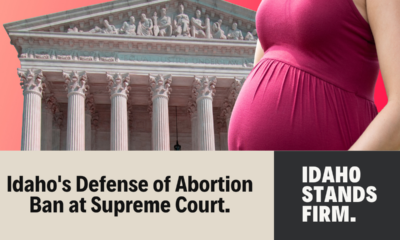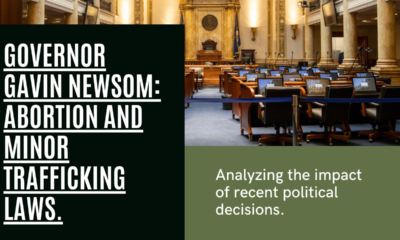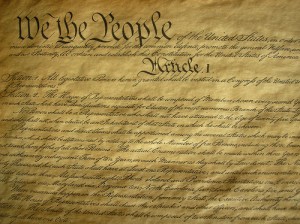Constitution
Role of government: your choice

It’s official: when we choose a President this fall, we will also choose a theory on the role of government. The putative President and the Mayor of New York both said it this week. Voters need to hear and understand exactly what they said and what this means.
What Obama and Bloomberg said
Yesterday, Barack H. Obama traveled to Cleveland, Ohio. He gave a rambling and almost petulant speech in this historic “battleground” State. Mostly he said, “It’s all Bush’s fault,” or something amounting to that. (Maybe he had read this Gallup Poll. Katie Pavlich has some other numbers that should set that record straight.)
But Obama said one thing worth hearing. The New York Times had two reporters on the ground to hear it:
Your vote will finally determine the path that we take as a nation — not just tomorrow, but for years to come.
In other words, Obama said that you will vote for more than a President (or to be technical, Presidential Electors). You will vote for a role of government. You will vote whether government will be your nanny or your monitor and arbiter.
If you doubt that, Mayor Mike Bloomberg should remove that doubt. Last week he made a rule that no convenience store, movie candy counter, etc., could sell you a drink larger than 16 ounces. Soft drink bottlers then took out a full page ad in the Times showing Bloomberg as “The Nanny.” (Or maybe as the title character in the Robin Williams movie Mrs. Doubtfire.)
What’s next? Limits on the width of a pizza slice, size of a hamburger or amount of cream cheese on your bagel?
Actually, popcorn and milkshakes are next. But Bloomberg brazenly said that he was only doing his job!
If [the role of government] isn’t to improve the health and longevity of its citizens, I don’t know what [that role] is.
The mayor then contradicted himself. He told his TV host that he didn’t mean to tell people what to do. But he and his Board of Health are doing just that!
Excuse me, Mr. (putative) President. Excuse me, Mr. Mayor. Obama is half right, and Bloomberg is totally wrong.
The proper role of government
To “improve the health and [long life] of its citizens” (and lawful residents) is not the role of government. The Framers of the Constitution never saw it that way. Nor is the role of government to guarantee you an income, no matter what Richard A. Cloward and Frances Fox Piven said 56 years ago.
The role of government is to manage force. This role derives from a basic social principle: so long as humans live together, no one may start using force against another. But humans will start using force, unless some other humans stop them, or deal with them when they do. That is the proper role of government. That is why we have government.
But the Progressive movement began with a new view of the role of government. They first said that government must “improve the health and [long life]” of those who live under it. And they didn’t stay with the Democratic Party, or even start there. The first Progressive President was Theodore Roosevelt, a Republican.
Ayn Rand best explained the three things that government ought to have:
- Police, to protect people from criminals.
- The military, to protect people from invaders.
- The law courts, to settle the people’s disputes.
The police shouldn’t be there to take your soda away from you, just because you bought almost a half-gallon for yourself. (Or your big bucket of popcorn, either.) The army shouldn’t be any place to “build” other countries. And the courts shouldn’t be there to guarantee income or health or anything else.
Yes, Mr. Obama. Voters will choose the role of government that they would like to live under. But no, Mr. Bloomberg, logic does not support your ideas of the role of government.
[amazon_carousel widget_type=”ASINList” width=”500″ height=”250″ title=”” market_place=”US” shuffle_products=”True” show_border=”False” asin=”0451233263, 0452281253, 0451191153, 0452011876, 0451163931, 0451147952, 0451163087, 0451149165, 0452264863, 0452011841″ /]

Terry A. Hurlbut has been a student of politics, philosophy, and science for more than 35 years. He is a graduate of Yale College and has served as a physician-level laboratory administrator in a 250-bed community hospital. He also is a serious student of the Bible, is conversant in its two primary original languages, and has followed the creation-science movement closely since 1993.
-

 Clergy4 days ago
Clergy4 days agoWhy Do The American People Let The Corrupt Media & Politicians Set The Propaganda Narrative – Speak On Their Behalf
-

 Entertainment Today5 days ago
Entertainment Today5 days agoCivil War (2024) – an incomplete prediction
-
![CHAPTER 10: Objective Reality Is Required for a Free Society Space Is No Longer the Final Frontier—Reality Is [upcoming release May 2024]](https://cnav.news/wp-content/uploads/2024/04/Objective-reality-v-acceptance-400x240.png)
![CHAPTER 10: Objective Reality Is Required for a Free Society Space Is No Longer the Final Frontier—Reality Is [upcoming release May 2024]](https://cnav.news/wp-content/uploads/2024/04/Objective-reality-v-acceptance-80x80.png) Education4 days ago
Education4 days agoCHAPTER 10: Objective Reality Is Required for a Free Society Space Is No Longer the Final Frontier—Reality Is [upcoming release May 2024]
-

 Human Interest4 days ago
Human Interest4 days agoIdaho prepares to defend its abortion ban
-

 Civilization3 days ago
Civilization3 days agoEarth Day Should Celebrate U.S. Progress & Innovation
-

 Education1 day ago
Education1 day ago‘Grading for Equity’: Promoting Students by Banning Grades of Zero and Leaving No Class Cut-Ups Behind
-

 Civilization2 days ago
Civilization2 days agoNewsom plays silly abortion politics
-

 Education3 days ago
Education3 days agoThe Intifada Comes to America. Now What?




Spot on, Terry! While a centralized government is necessary, a limited government is also necessary for a liberty-loving people. Our founders clearly delineated the powers of government in our Constitution, and just so there would be no misunderstanding, they wrote Article 1, Section 8.
[…] Obama earlier said that when people vote in 2012, they will choose between two fundamentally different theories of […]